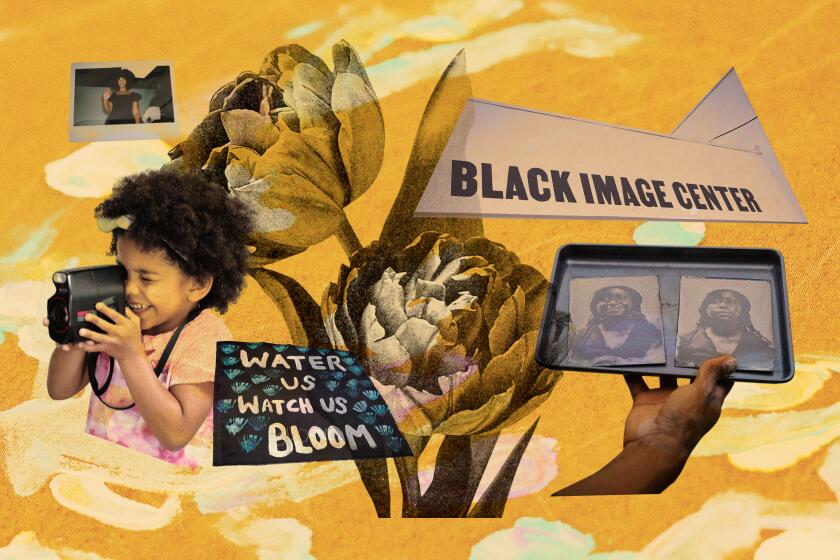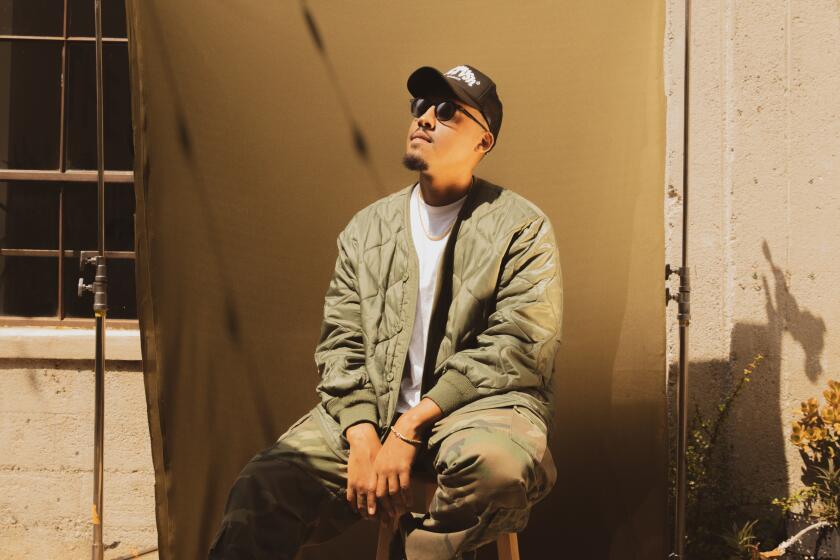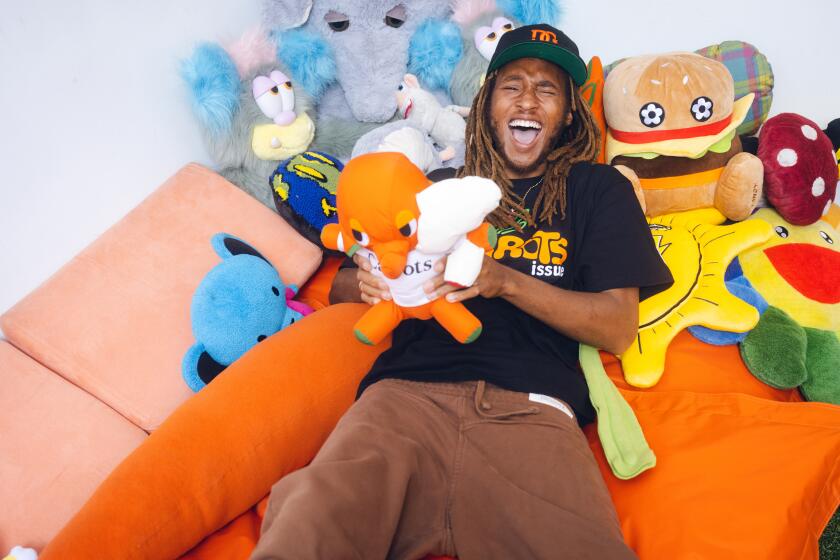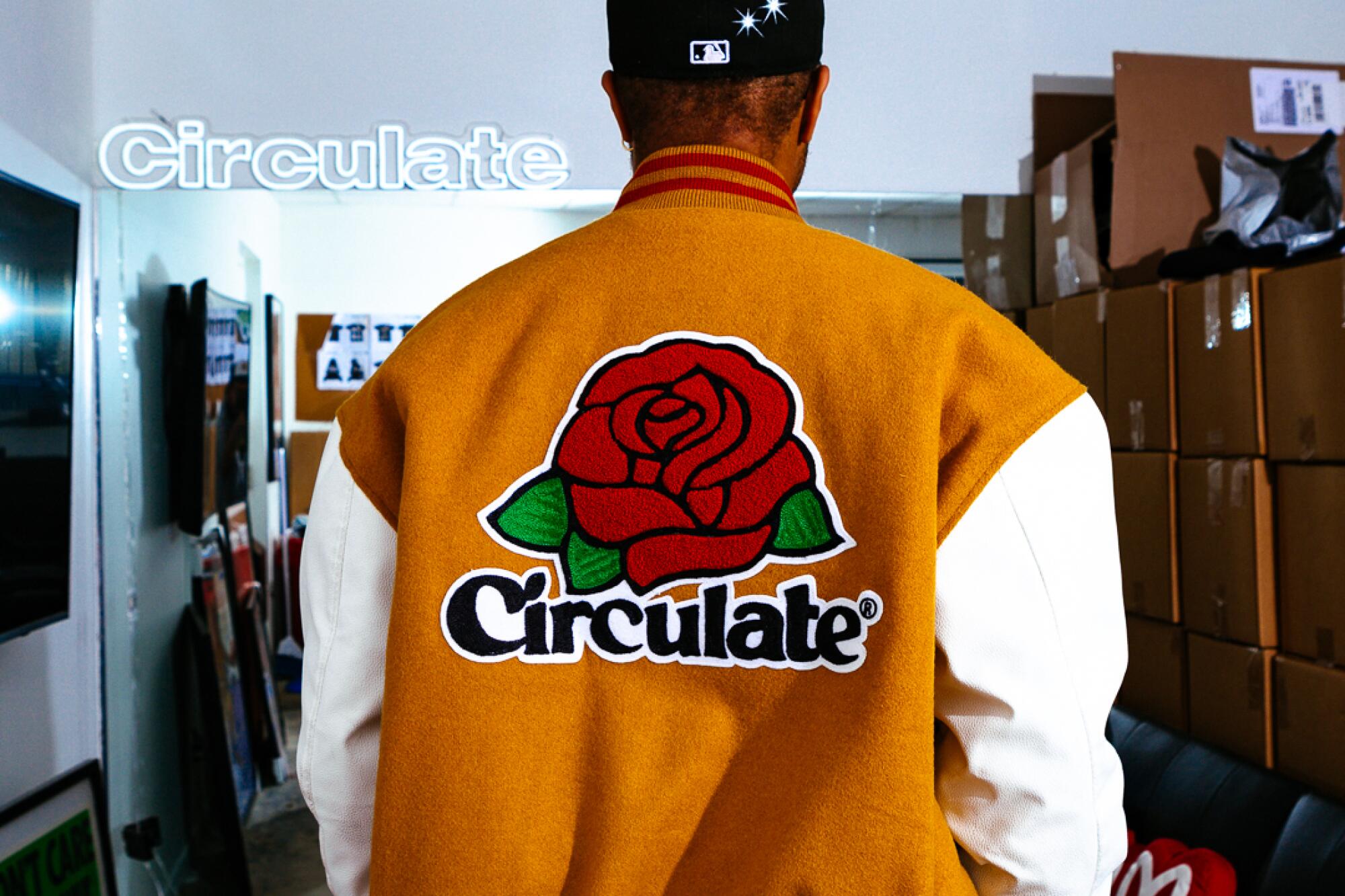
- Share via
Corey Populus, 33, has always found beauty in the fluid, circular nature of not only L.A. fashion and streetwear but life. There’s a freedom in that, one that Populus has tried to capture and redistribute through his brand and creative studio, Circulate. It’s a version of liberation he’s been chasing since he was a preteen on a skateboard in Leimert Park, then as an intern turned fixture on Fairfax, and later, when he left his post in sales at Diamond Supply to become an entrepreneur on his own terms.
Now, Populus is giving that same feeling to others — by uplifting other Black-owned L.A. brands and by giving back to charity through Circulate Market or his education initiatives through Circulate Arts. This Juneteenth, the designer is celebrating by doing what he does: circulating resources and putting his homies on. “That’s what Circulate is,” Populus says. “A tool to get a message across, give back or build community. That’s the more important value.” In this essay, told to Julissa James, Populus breaks down why Circulate is more than just T-shirts and why he hopes it can serve as a tool to free ourselves.
I’ve been around the world and seen different things that’ll change your perspective on life. I think that’s why I like giving back to the community so much.
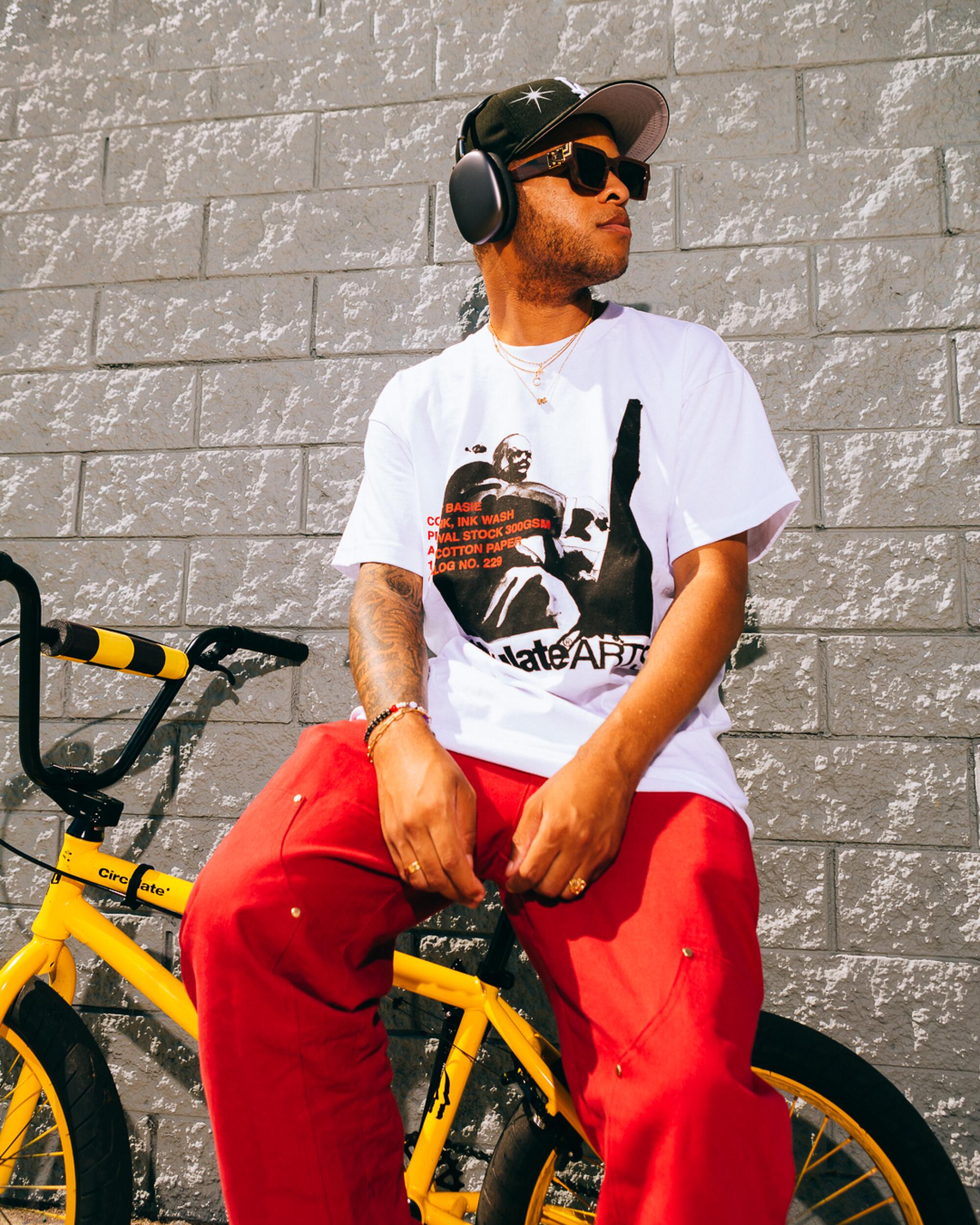
Me showing kids how to print a T-shirt or how to use this program can change a whole aspect of their life — they can be the next me, or whatever it is.
You know, they had to see that to become that.
Circulate is a tool to get a message across, give back or build community. That’s the important value — to circulate more than a T-shirt. [I got the concept] after looking up the exact definition of “circulate.” It was “passing things from person to person.”
Liberation looks like creating with people who can match your energy. The organization is helping Angelenos cultivate freedom in their everyday lives.
[Take a] piece of clothing’s lifespan. I’m wearing the shirt today, and I’ll give it to my little cousin a year later. Then he grows out of it and takes it to Goodwill. Now someone else is going to buy that shirt. It keeps living on forever. And then another piece of it, I was like, “I can circulate any type of message I want.”
I’m always making sure I’m sharing my friends’ stuff; they’re doing the same thing. That’s how we keep dominating spaces: by sharing resources and speaking about each other when we’re not in the same room. Any opportunity that I can give back in any way, that’s usually what I’m trying to do.
Everyone thinks they can run a brand, but when you really get thrown in the fire, it’s not just printing hoodies and T-shirts and putting a picture up on Instagram. It’s not always glitz and glamour. But I wouldn’t change it for anything.
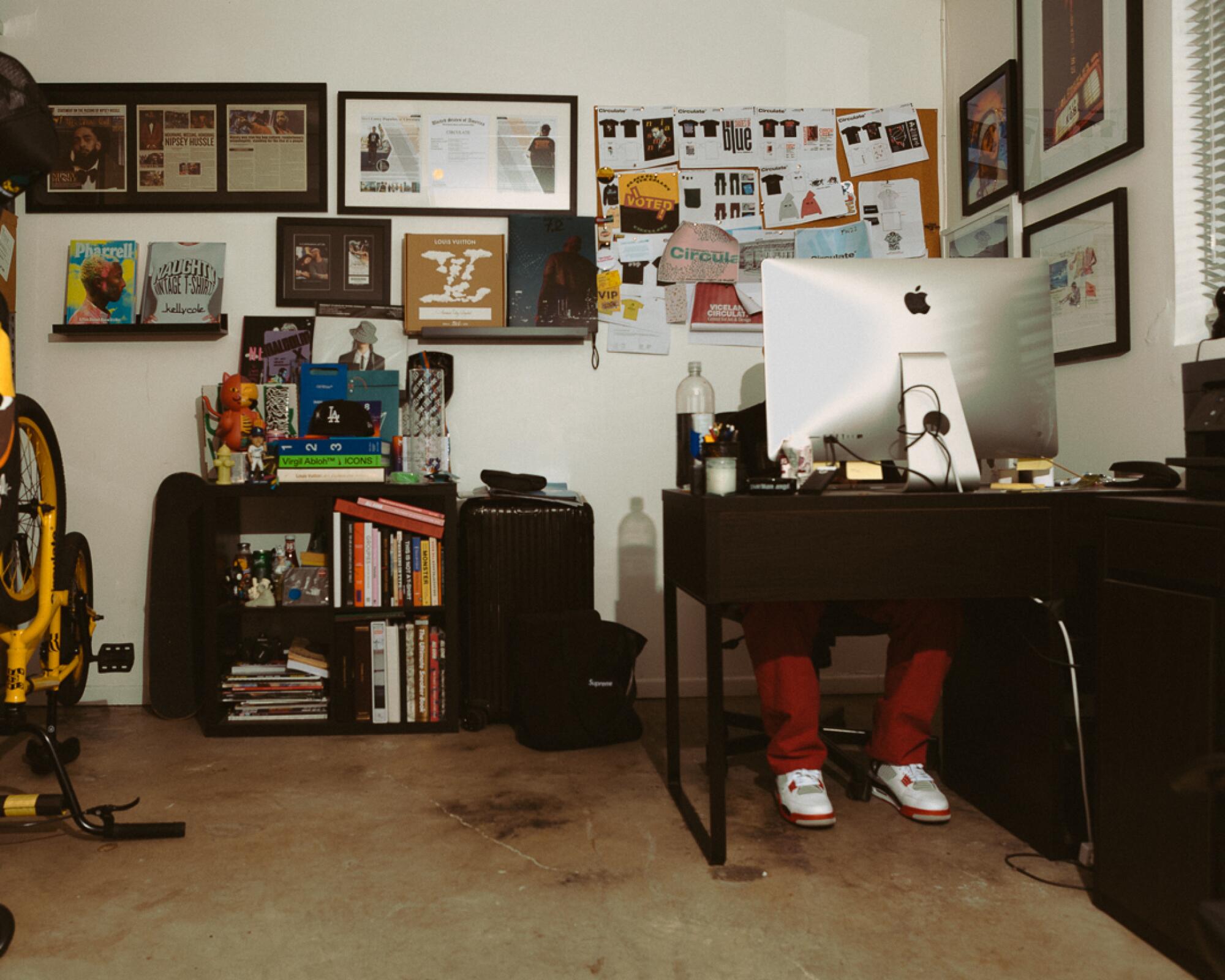
I was at a tipping point right before the pandemic. I felt like, “My brand is actually starting to catch some steam. I’m going to be up next.” Then the pandemic hit. I’d been selling Circulate to PacSun since we started. [Then] they had to close a bunch of stores and cancel my order. As the pandemic slowly started to fade away and all the protests were happening, I was making shirts and graphics that were relevant to the uprising. PacSun reached back out to me and were like, “Yo, we’re about to start opening the stores again. We would love to get some product.” I was like, “Yeah, but I have this really cool idea.”
Clothes from Supervsn, L.A.’s premier streetwear energy brand, are designed and manufactured with ‘high-frequency vibrational energy.’
During that time period, everyone was like, “Support Black business! Yada yada.” All these online publications were compiling these lists: “Here’s 10 Black brands that you should know.” It was the same people every time. (Not to downplay those people because a lot of them are my friends.) But I’m like, “Yo, there’s a ton of brands out here that are Black-owned and are doing great things. They’re leaving us out.”
That sparked Circulate Market — I wanted to highlight Black-owned brands that I like and give them the spotlight, because I was tired of seeing the same usual suspects. PacSun has a big platform, so I told them, “Can we add a charity component to it? Let each brand come and choose a charity that resonates with them?” They were super on board. I got to choose Kacey Lynch from Bricks & Wood, Anwar Carrots and all my really close friends. We did a pop-up shop in downtown L.A. and also in New York. We did a charity shirt. It was amazing and it was really organic.
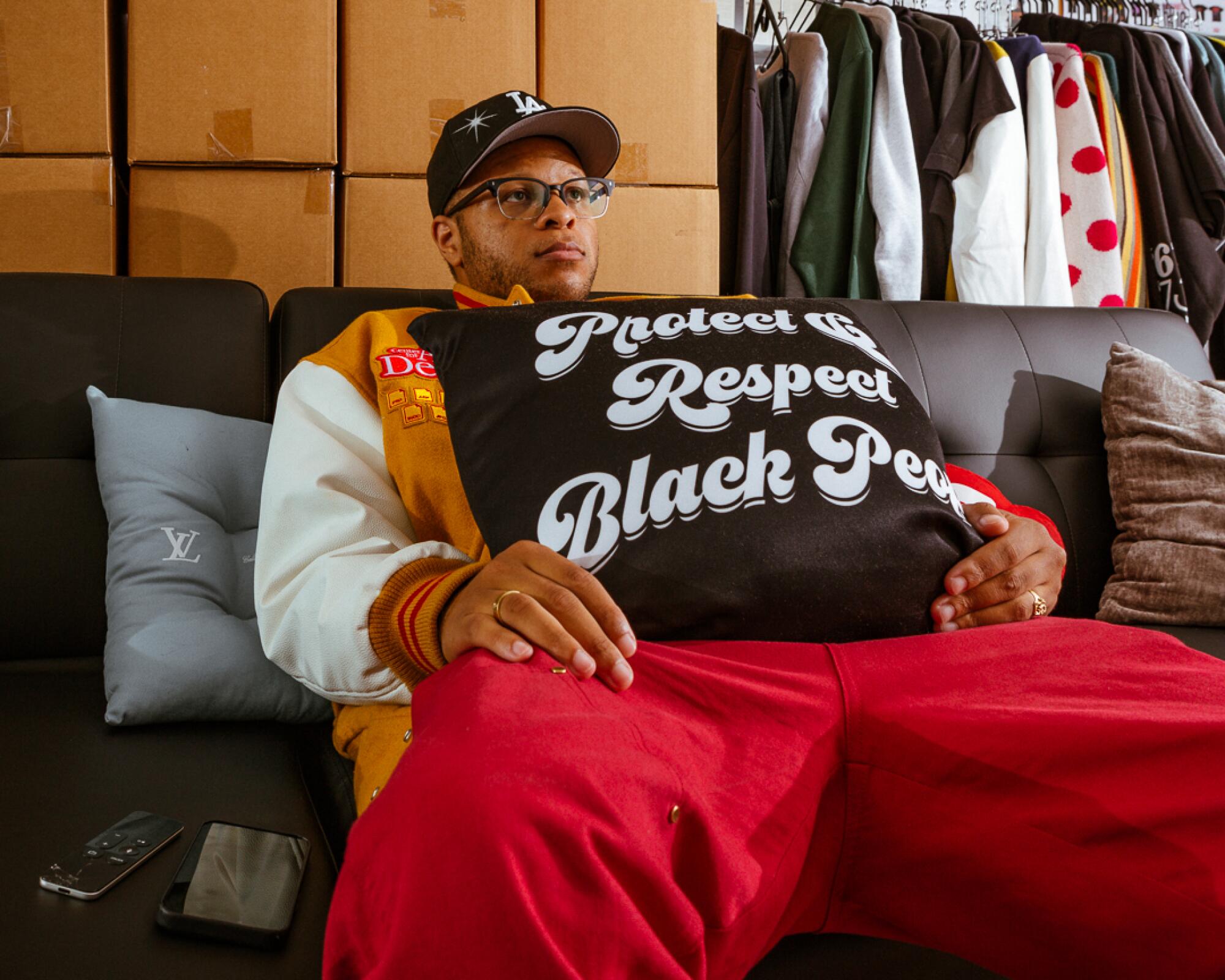
That was the whole premise: I wanted to share my resources with my friends. And then we also shared our resources with different charities. Now, I do Circulate Market every year. With the last one I just did, I selected new brands and we did a charity shirt — a collaboration with the organization Clean Up South Central by Dime Jones — to help rebuild a computer lab at Bret Harte Preparatory Middle School.
Follow Fairfax O.G. Anwar Carrots and you’ll realize it’s not about making stuff; it’s about making stuff look cool.
I’m trying to have different pillars of Circulate. Circulate Arts is more about cultural things and telling a story — I just did a collaboration with the NFL, a shirt on Kenny Washington, the first Black football player to sign an NFL contract. He’s from L.A., went to UCLA. Then there’s ReCirculate — it’s all about sustainability and helping the Earth. I’m going to relaunch that in September. Then there’s another piece of Circulate called Circulations, which is all music and jazz stuff — I did this really cool shirt with a chart of the evolution of African American music.
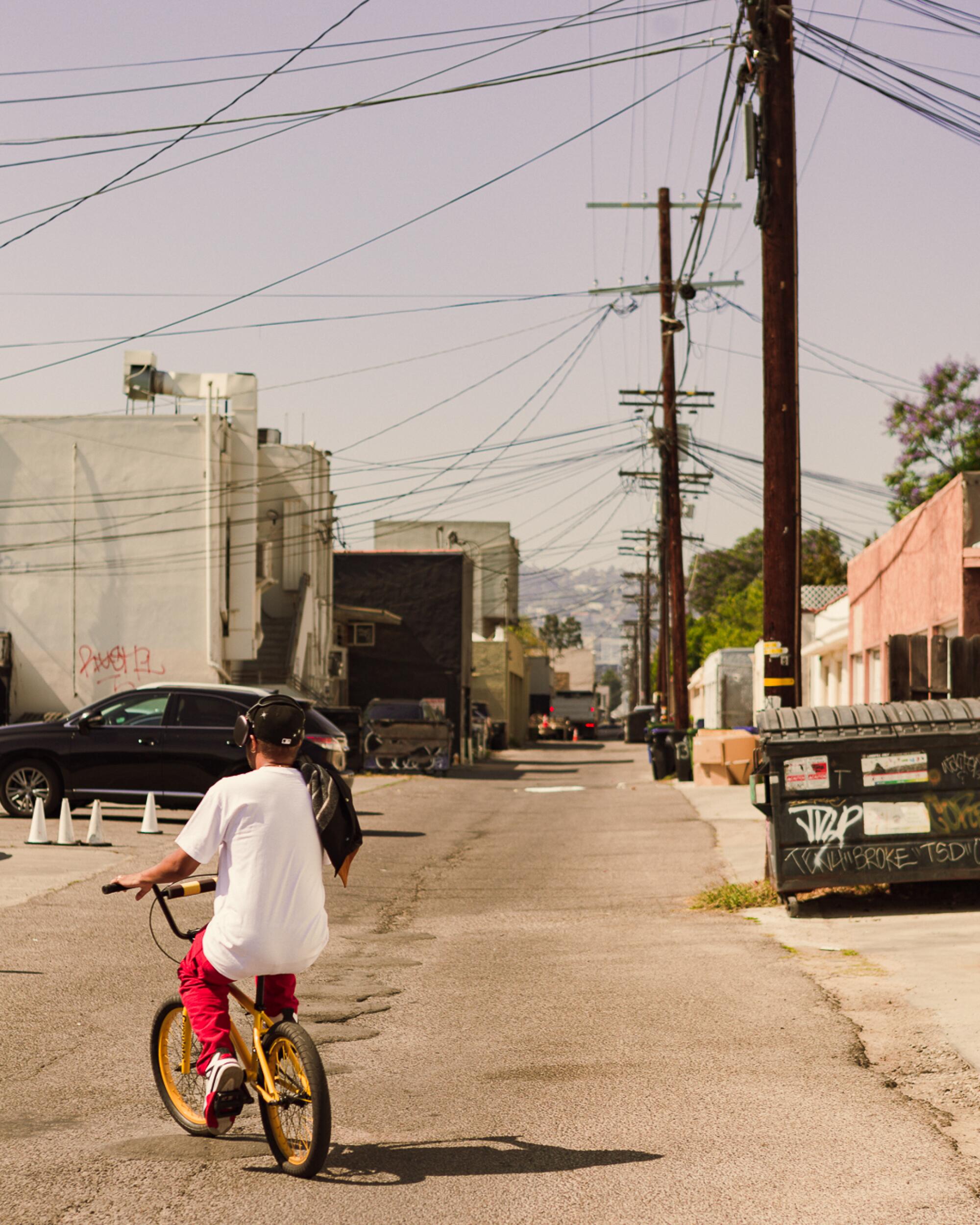
Fifteen-year-old Corey would trip out on the Corey that I am now. Being able to wake up when I want, go on a walk whenever I want, move freely, have financial freedom. You know what I mean?
I get to be myself.
